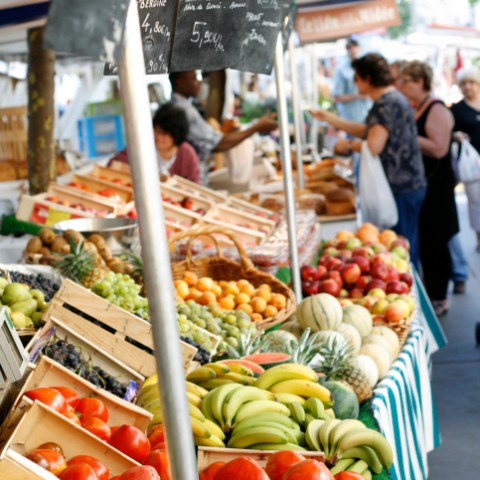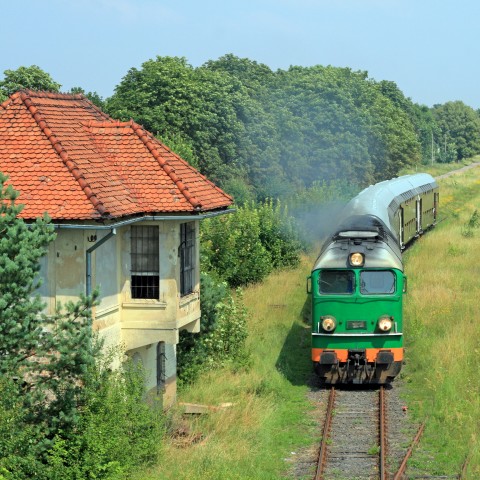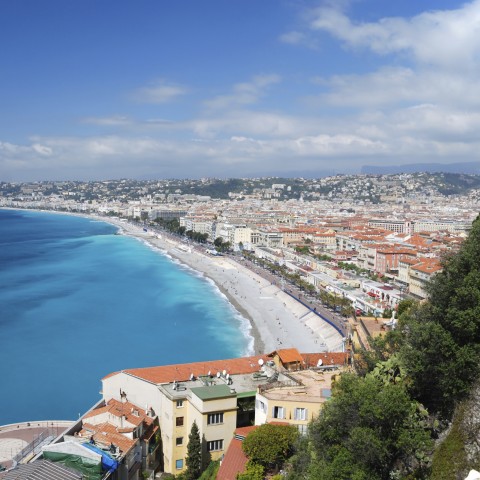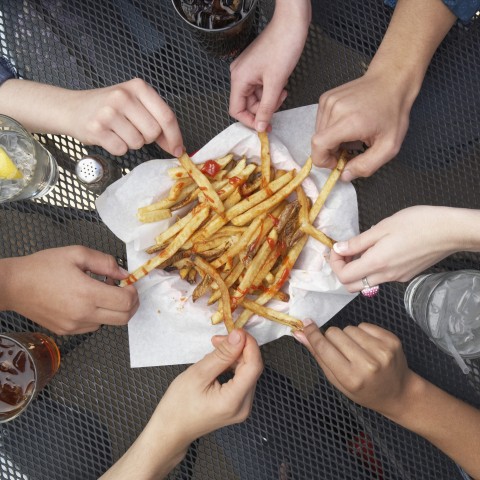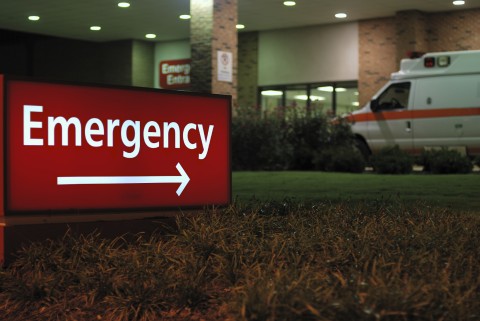If you’re reading this, you already know why you want to travel to France, be it the beauty and diversity of its landscapes, the appeal of its cuisine, or its wealth of history. But you may find yourself in need of helpful French travel phrases, and fast!
As a travel destination, France is notorious for a reason and it will delight the casual beach-goers and culture vultures alike. But to be fair, it’s not the cheapest travel destination and the language barrier can be challenging. Even though the number of English speakers has been rising rapidly over recent years, we’re still lagging behind most of our European neighbors. Even in the most touristic spots, you might bump into a waiter, a taxi driver, or a ticket seller who doesn’t speak anything but French.
This is where our French travel phrases will come in handy!
In this guide, you’ll find everything you need to travel around France, from the basic daily words to specific topics such as transportation, restaurants, hotels, and much more. You’ll also find more French travel tips to help you find your way around your new favorite country with these key French travel phrases!
Without further ado, let’s move on to our list of French travel phrases.
Table of Contents
- Survival Basics: Simple French Travel Phrases
- Lost in Translation
- Shopping
- Moving Around
- Hotel / Hostel
- Restaurants
- Asking for Directions
- Emergencies
- How FrenchPod101 Can Help You Learn More French Vocabulary
Arras, in the “Hauts-de-France” region.
1. Survival Basics: Simple French Travel Phrases
In this chapter, I gathered a list of basic French travel phrases and words that can prove useful in most encounters in France. These French phrases for travel are just what you need to get started on your journey here. Later on, we’ll examine more specific scenarios and make sure you’re well-equipped for anything that could come your way! You’ll certainly be glad to know this survival French for travelers!
1- Being Polite
As I’ve mentioned in other articles, France invented the word “étiquette” and is still a place where courtesy matters…a lot. I’m not saying all French behave like white knights of exquisite politeness, but knowing how to greet and thank your French hosts and friends will take you a long way, while doing so in their language makes you instantly more likable.
| Bonjour ! | “Hello!” |
| Bonsoir ! | “Good evening!” |
| Comment tu t’appelles ? [Casual] Comment vous appelez-vous ? [Formal] |
“What is your name?” |
| Enchanté. | “Nice to meet you.” |
| Au revoir. | “Goodbye.” |
| Merci (beaucoup). | “Thank you (very much).” |
| Non merci. | “No, thank you.” |
| S’il te plaît. [Casual] S’il vous plaît. [Formal] |
“Please.” |
| Je t’en prie. [Casual] Je vous en prie. [Formal] |
“You are welcome.” |
| Excuse-moi. [Casual] Excusez-moi. [Formal] |
“Excuse me.” |
| (Je suis) désolé. | “(I am) sorry.” |
These are just the ten most useful phrases. To read more on this topic or to practice some of these French travel phrases with pronunciation, please have a look at the following resources on FrenchPod101:
- How to Say Hello in French
- Vocabulary List: Common Ways to Say Hello
- How to Introduce Yourself
- Vocabulary List: 10 Lines to Introduce Yourself
2- General Toolkit
Now that you’ve shown your good manners, let’s look at a few more essential French phrases for travellers. Here are some common words and expressions to gracefully make your way through France.
| Oui / Non | “Yes / No” |
| J’aime / Je n’aime pas | “I like / I don’t like” |
| Pourquoi ? | “Why?” |
| Quelle heure est-il ? | “What time is it?” |
| Où sont les toilettes ? | “Where are the toilets?” |
This is a small sample of the most common general phrases. You can find out more on our List of 24 Key Phrases with audio recordings, on FrenchPod101.
2. Lost in Translation
Even if you’re well-prepared and almost fluent, there will be times when your interlocutor doesn’t make sense to you, and you’ll have to make them repeat. Heck, even as a native speaker, I’m helpless with the thickest cases of southern French accents! So just know that even knowing the best French travel phrases won’t always save you from the awkwardness of asking someone to repeat what they said.
It’s perfectly fine to ask someone to talk slower, repeat themselves, or rephrase what they were saying. Most French people will be happy to see you putting in the effort and will help you understand.
| Tu peux répéter ? [Casual] Pouvez-vous répéter (s’il vous plaît) ? [Formal] |
“Can you repeat (please)?” |
| Un peu plus lentement, s’il te plaît. [Casual] Un peu plus lentement, s’il vous plaît. [Formal] |
“A bit slower, please.” |
| Je suis désolé, je ne comprends pas. | “I’m sorry, I don’t understand.” |
| Que signifie ___ ? Qu’est-ce que ça veut dire ? |
“What does ___ mean?” “What does it mean?” |
| Comment on dit ___ en Français ? [Casual] Comment dire ___ en Français ? [Formal] |
“How do you say ___ in French?” “How to say ___ in French?” |
| Tu parles Anglais ? [Casual] Est-ce que tu parles Anglais ? [Casual] Vous parlez Anglais ? [Formal] Parlez-vous Anglais ? [Formal] |
“Do you speak English?” |
Je ne comprends pas ( “I don’t understand” )
3. Shopping
From the sparkling fancy boutiques of the Champs-Elysées to the dusty antiques of a typical Brocante (“Garage sale”), from the sprawling suburban malls to the modest Bouquinistes ( “Book sellers” ) along the Seine river, France caters for all tastes and budgets.
French shopping is usually a painless experience: Prices are displayed almost everywhere and credit cards are widely accepted, even in small bakeries or convenience stores. We don’t do five hours of siesta in the middle of the day, and unless you’re strolling around the Eiffel Tower in the crowd of souvenir sellers who won’t let you leave without a dozen dust collectors, shop owners aren’t likely to jump on you.
| Combien ça coûte ? Combien coûte ce ___ ? |
“How much is it?” “How much is this __?” |
| Combien coûte un kilo ? Combien ça coûte à l’unité ? |
“How much is it for a kilo?” “How much is it for one?” |
| J’en voudrais XX. | “I would like XX of this.” |
| A emporter / Sur place | “To take away / To eat here” |
| Je peux payer par carte ? | “Can I pay with card?” |
| Je vais payer en liquide. Je vais payer en espèce. |
“I will pay with cash.” |
Le marché ( “The market” )
For more shopping words, check out our free Shopping vocabulary list.
While shopping in France, you’ll also need to know how to handle prices or quantities. Make sure to read my previous article about French Numbers: From 0 to Infinity, and Beyond and the complementary vocabulary list.
4. Moving Around
No list of basic French phrases for tourists would be complete without information on talking about your ride. Whether you travel by bus, train, taxi, or plane, you need to be able to ask your way around, inquire about the timetables and details of the trip, navigate until you board the correct ride, and figure out when to get off.
Here are the most popular ways to move around France:
- Le train ( “Train” )
This is the fastest, most comfortable, and usually most scenic way to travel from one city to another. However, compared to buses, it can be pretty expensive, especially when booked at the last minute. Although locals will often complain of the trains being late or canceled, our national network is actually pretty strong and reliable compared to those of some of our close neighbors. - Le bus intercité ( “Intercity bus” )
Bus travel has been developing rapidly in recent years and offers cheap prices to compete with the train and car sharing services. For instance, you can book an overnight trip from Paris to Nice for 28€ while a train on the same date would be around 60€. - Moving around the city with Les transports en commun (“The public transport”): Bus, Métro, or Tram ( “Bus,metro, or Tramway” )
The subterranean metro or Trams are only available in big cities, but you can always move around with a local bus. Without the monthly or annual card, individual trips can be purchased for around 2€ in the metro or tram station, or directly on the bus. - Le taxi ( “Taxi” ) is the expensive alternative to public transportation that you only want to take when you’re going to the airport in the middle of the night or going back home dead drunk after an intense night out.
- Questionable business practices aside, Uber is a much cheaper and more convenient substitute to taxis, and it’s well-developed in France.
- L’avion ( “Plane” )
Keeping in mind the dire environmental cost, traveling by plane is by far the fastest way to cover long distances and the prices of the Billets d’avion ( “Plane tickets” ) have continued to drop steadily over the years. Prices are especially low if you can book around a month in advance.
Le train ( “The train” )
Now, where do you want to go?
| La gare (ferroviaire) | “The railway station” |
| Le terminal de bus La station de bus |
“The bus terminal” “The bus station” |
| La station de taxis /métro / tram | “The taxi / metro / tramway station” |
| L’arrêt de bus | “The bus stop” |
| L’aéroport | “The airport” |
Then, using your brand new words, find your way there:
| Je voudrais aller à l’aéroport. | “I would like to go to the airport.” |
| Pouvez-vous m’indiquer la gare ? | “Could you show me where the railway station is?” |
| Où est la station de métro la plus proche ? | “Where is the closest metro station?” |
| Pouvez-vous m’appeler un taxi ? | “Could you call a taxi for me?” |
| Je cherche le terminal de bus. | “I’m looking for the bus terminal.” |
Now, you have to ask the right questions before buying your tickets:
| Où puis-je acheter un billet ? | “Where can I buy a ticket?” |
| Aller simple / Aller-retour | “One-way trip / Round trip” |
| Combien coûte le billet pour Dunkerque ? | “How much is the ticket to Dunkerque?” |
| A quelle heure part le prochain train pour Dunkerque ? | “At what time is the next train to Dunkerque leaving?” |
Personally, I don’t see why anyone would go to Dunkerque, but I’ll let you be the judge of that (or rather don’t!).
And finally, you’ll just have to figure out where your ride is leaving from and when you should get off:
| Est-ce le bon quai pour aller vers Issy ? | “Is this the right platform to go to Issy?” |
| Est-ce que ce train s’arrête à Issy ? | “Does this train stop in Issy?” |
| Pouvez-vous me prévenir quand nous arriverons à Issy, s’il vous plaît ? | “Could you please tell me when we’ll arrive at Issy?” |
| Porte d’embarquement | “Boarding gate” |
To learn more vocabulary about transportation, please check out our lists of vocabulary for Airplanes, Bus or Train Stations, and Crossing Borders.
5. Hotel / Hostel
As the most visited country in the world (nothing wrong with a bit of bragging!), France has no shortage of accommodation of all shapes, sizes, and prices. You’re not likely to run out of options when looking for a place to spend the night. But you may still want a couple of French travel tips and phrases regarding your stay.
Prices vary greatly depending on the season and proximity to the tourist attractions, but considering the quality of the transport network all over the country, it’s usually fine to sleep outside of the city center.
While the Gîtes ruraux (“Rural houses” used as vacation rentals) and Chambres d’hôte ( “Bed & Breakfast” ) are popular choices among locals for their summer vacations, the most common options are still L’hôtel ( “The hotel” ) and its budget version, L’auberge de jeunesse (“The hostel” or “Youth hostel”).
Nice, on the Mediterranean coast.
Most visitors in France will book their room through the usual Booking.com or HostelWorld, but there are times when you just want to stroll around and find the perfect place all by yourself. Here’s how to ask for a room in French:
| Avez-vous une chambre disponible pour XX personnes ? | “Do you have a room available for XX people?” |
| Lits séparés / Lit double / Dortoir | “Twin beds / Double bed / Dorm room” |
| J’ai une réservation au nom de Bob Wilson. | “I have a booking in the name of Bob Wilson.” |
Next step: you probably have some questions about the room.
Est-ce que la chambre a ___ ?
|
“Does the room have ___?”
|
| Est-ce que je peux voir la chambre ? | “Can I see the room?” |
| Combien coûte une nuit ? | “How much is it for one night?” |
| Combien coûte une nuit par personne ? | “How much is it per person for one night?” |
| Est-ce que le petit déjeuner est inclus ? | “Is breakfast included?” |
| A quelle heure est le petit déjeuner ? | “At what time is the breakfast?” |
6. Restaurants
You’ve found a nice room with a convenient location in this cute family-run hostel. You’ve dropped your bags and are now ready for more adventures. But wait, what’s that sound? Is that the infamous Beast of Gevaudan or your growling stomach?
If there’s one thing France is acclaimed for, it has to be the food! Good food is at the heart of our friends, family, and even business meetings; alongside wine, it stands as the cornerstone of our philosophy of Art de vivre (“The Art of Living”).
Some people imagine French meals as fancy and snobbish, but this is mostly untrue. From the biggest cities to the tiniest towns, you can always find a good Brasserie ( Literally “Brewery” ) to serve you a generous portion of typical and unpretentious food such as Cassoulet (A mixture of white beans and sausage simmered in goose fat), Steak au poivre (“Pepper steak”), or Tartare de boeuf (“Beef tartare”), served with a glass of Beaujolais.
Many restaurants have the menu displayed outside, which is really convenient if you want to quietly check your options before entering. When they don’t, you can simply ask for it before sitting; if you don’t like what you see, just give it back, thank them politely, and leave.
| Est-ce je peux voir le menu, s’il vous plaît ? | “Can I please see the menu?” |
| Merci, bonne soirée ! | “Thank you, have a good evening!” |
Otherwise, if you like what they offer, go ahead! Most restaurants will take you to a table, while simple Brasseries, Pubs, or fast food places will let you seat yourself.
1- How to Order Drinks
Before you order the food, the first question you’ll usually hear is:
- Voulez-vous boire quelque chose ? ( “Do you want something to drink?” )
- Voulez-vous commander quelque chose à boire ? ( “Would you like to order a drink?” )
It’s worth noting that when you order a meal, water is always free in France (we have a law explicitly stating it). I’m talking simple tap water in a pitcher, and not sophisticated bottled sparkling water, but this is an amazing feature of French restaurants, especially if you’re on a budget! And you can get refills.
To ask for your free water, don’t just ask for water; sneaky waiters could take your order as mineral water and charge you for it. Instead, use this phrase:
| Une carafe d’eau s’il vous plaît. | “A jug of water, please.” |
The important word here is Carafe (“Jug”), as it differentiates this from a paid order of mineral water. Also, don’t worry: water is properly filtered all over the country and it’s always fine to drink from the tap.
Oh, and you know what else is always free? Delicious French bread!
Did you know that French Fries are not French?
2- How to Order Food
Alright, now, let’s get some food on this table!
If you have any specific diet or allergy, it’s probably best to start with this:
| Je suis allergique aux cacahuètes. | “I’m allergic to peanuts.” |
| Est-ce que ce plat contient des cacahuètes ? | “Does this dish contain peanuts?” |
| Avez-vous des plats végétariens ? Avez-vous des plats végans ? |
“Do you have vegetarian dishes?” “Do you have vegan dishes?” |
And here’s how to order something from the menu:
| Quel est le plat du jour ? | “What is today’s special?” |
| Je voudrais un plat du jour. Je voudrais un menu du jour. |
“I would like today’s special.” “I would like today’s menu.” |
| En entrée, je voudrais une salade. En plat, un steak au poivre. En dessert, une tarte aux pommes. |
“For a starter, I would like a salad.” “For main, a pepper steak.” “For dessert, an apple pie.” |
Your stomach has stopped growling, your belly’s full of French delicacies, and your mind is at peace. It’s time to thank the chef and ask for the bill:
| C’était délicieux, merci ! | “That was delicious, thank you!” |
| L’addition s’il vous plait. Pouvons-nous avoir l’addition, s’il vous plait ? |
“Check, please.” “Can we get the check, please?” |
| Peut-on avoir des additions séparées ? | “Can we have separate bills?” |
You can find more vocabulary and practice your pronunciation with our vocabulary list on Restaurants and key phrases for restaurants.
7. Asking for Directions
As Mandy Hale says, “Sometimes when you lose your way, you find yourself.” But sometimes, you just get severely frustrated and waste your day trying to reach this freaking museum your GPS keeps making you circle around.
One way or another, you’ll always end up relying on the help of locals to reach well-concealed destinations. Let’s start with the most common questions:
| Je cherche le Panthéon. Où se trouve le Panthéon ? Pouvez-vous m’indiquer le Panthéon ? |
“I’m looking for the Pantheon.” “Where is the Pantheon?” “Could you tell me where the Pantheon is?” |
| Comment aller au Panthéon ? | “How can I go to the Pantheon?” |
| Dans quelle direction se trouve le Panthéon ? | “Which way is the Pantheon?” |
Je suis perdu. ( “I am lost.” )
As I often noticed while traveling, asking for directions is always the easy part, but making anything of the other person’s answer can prove much more challenging. Here are some examples of the answers you could receive:
| Allez tout droit, puis prenez la première rue à gauche. | “Go straight, then take the first street on the left.” |
| Tournez à droite quand vous sortez de la gare. | “Turn right when you leave the train station.” |
| Traversez la rue en face de la gare. | “Cross the street in front of the train station.” |
To understand these kinds of instructions, it all comes down to knowing the right keywords, such as Droite (“Right”), Gauche (“Left”), En face (“In front”), Tout droit (“Straight”), and a few others.
Check out our lists of vocabulary for Position Words and Direction Words on FrenchPod101 to learn more about this.
And here’s more vocabulary and recordings about Key Places in Town, as well as the French Tourist Attractions.
8. Emergencies
In case of an emergency, you don’t want the language to get in the way of you and the help you need. Let’s have a look at the main emergency words (which may just be the most important French travel phrases when you need them) and how to use them.
| A l’aide ! J’ai besoin d’aide ! |
“Help!” “I need help!” |
| Le médecin Pouvez-vous appeler un médecin ? Où puis-je voir un médecin ? |
“The doctor” “Can you call a doctor?” “Where can I see a doctor?” |
| L’hôpital C’est une urgence. Je dois aller à l’hôpital. Appelez une ambulance ! |
“The hospital” “It’s an emergency.” “I need to go to the hospital.” “Call an ambulance!” |
| La pharmacie Où est la pharmacie la plus proche ? Des médicaments J’ai une assurance de voyage. |
“The pharmacy” “Where is the closest pharmacy?” “Medication” “I have travel insurance.” |
| La police Appelez la police ! Où puis-je trouver le commissariat ? |
“The police” “Call the police!” “Where can I find the police station?” |
| Il n’y a plus de fromage dans le frigo ! | “There is no more cheese in the fridge!” |
C’est une urgence ! ( “It’s an emergency!” )
For more words on this topic, make sure to visit our free list of vocabulary about The Words and Phrases to Help You if You are in an Emergency.
If you’re in need of medical assistance, you’ll be glad to know about the Common Health Problems and some basic vocabulary about Medicine.
9. How FrenchPod101 Can Help You Learn More French Vocabulary
French travel phrases in language learning are so important, and in this guide, you’ve learned a LOT of French travel phrases. I hope it wasn’t too overwhelming! Using these travel phrases to learn French will surely benefit you, but you don’t have to remember them all, as long as you keep these phrases accessible in a notebook or on your phone.
Did I forget any important words or expressions? Are you ready to get out there and ask locals about your travel needs?
Make sure to explore FrenchPod101, as it has plenty of free resources for you to practice your grammar and learn new words. The vocabulary lists are also a great way to revise and listen to the words. And you’re in luck, because we have tons of lists about traveling:
- Top 30 Travel Phrases
- Most Useful Verbs for Traveling
- Travel and Traveling general lists
- Vocabulary for Nationalities
- Summer Vacation Phrases
- Words for the Beach
- Winter and Snow Vocabulary
Remember that you can also use our premium service, MyTeacher, to get personal one-on-one coaching. Practice creating French travel phrases with your private teacher so they can give you personalized feedback and advice, or record them for you, so you learn the correct pronunciation.
About the Author: Born and bred in the rainy north of France, Cyril Danon has been bouncing off various jobs before he left everything behind to wander around the wonders of the World. Now, after quenching his wanderlust for the last few years, he’s eager to share his passion for languages.






